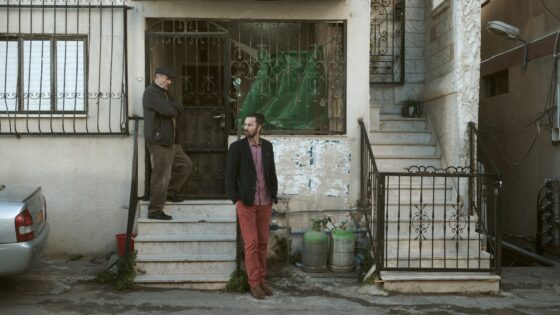Wajib (Annemarie Jacir, Palestine/France/Germany/ Colombia/Norway/Qatar/UAE) — Contemporary World Cinema
By Lorenzo Esposito
What does it mean to be a Palestinian abroad? What does it mean to be a Palestinian at home? Can the struggle between the two identities tell us something honest about a Palestinian society living under the Israeli occupation? Wajib, Annemarie Jacir’s third feature, confirms the director’s ability to show and discuss the complexity and contradictions of human relations through the seeming simplicity of the film’s visual and narrative structure—if we could ever define as “simple” a three-year long process of writing a script involving a real father and son performing the main roles of father and son.
Abu Shadi (Mohammad Bakri), an old, divorced architect from Nazareth, is determined to respect the local tradition of hand-delivering, house by house, the invitations for his daughter’s upcoming wedding. His son Shadi (Saleh Bakri) travels back from Rome to Palestine in order to help him. Wajib is a day-long road trip into a very diverse Palestinian community, which is sometimes treated with a subtle and slightly dark humour; it’s a community that the father struggles to keep united and the son simply no longer understands. Wajib means “duty” in Arabic—here, that denotes the duty to accept each other, to keep identity alive in a city where Israel doesn’t recognize Palestinian citizens as Palestinians, and also the duty to criticize (as Jacir has publicly declared) the Palestinian leadership that seems to be more and more disconnected from the people than ever. Here the filmmaker’s duty is to look after and, at the same time, to be surprised by the very process of bringing to life a carefully scripted film which, in the end, comes out as not scripted at all, as in the moving last sequence where father and son finally rest on the family house’s balcony, smoking and drinking coffee together, looking at the city of Nazareth in front of them.
Lorenzo Esposito



